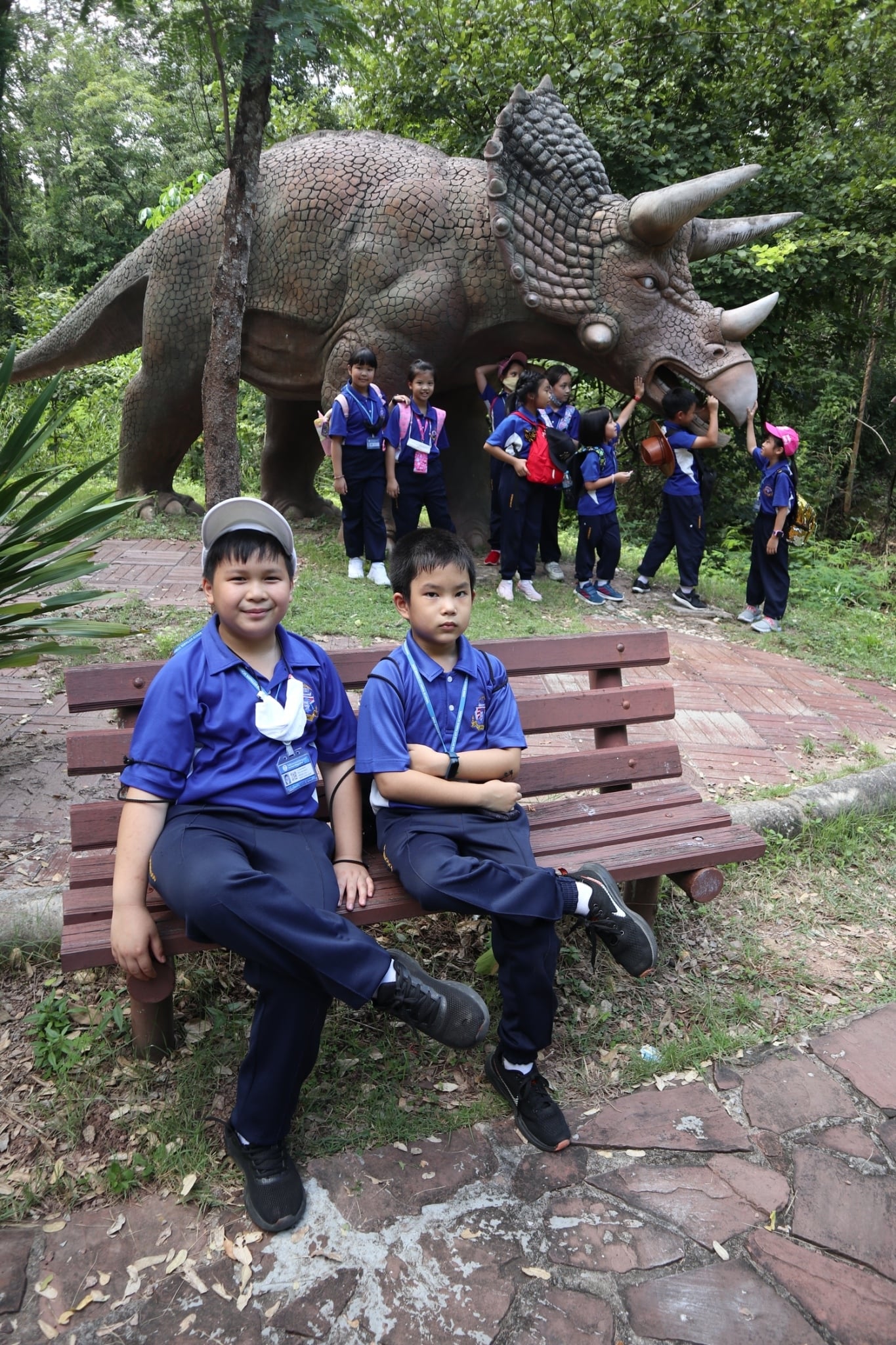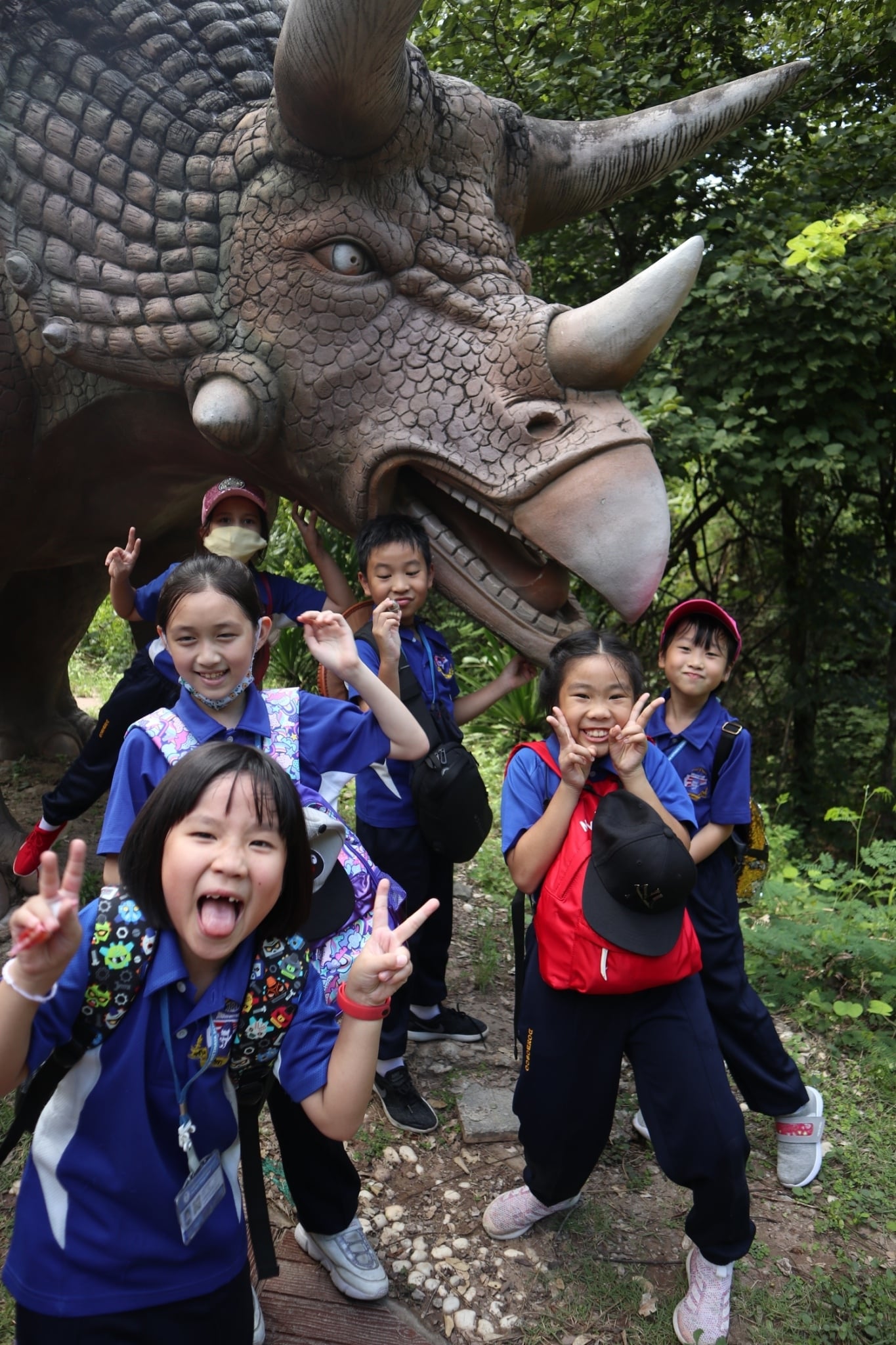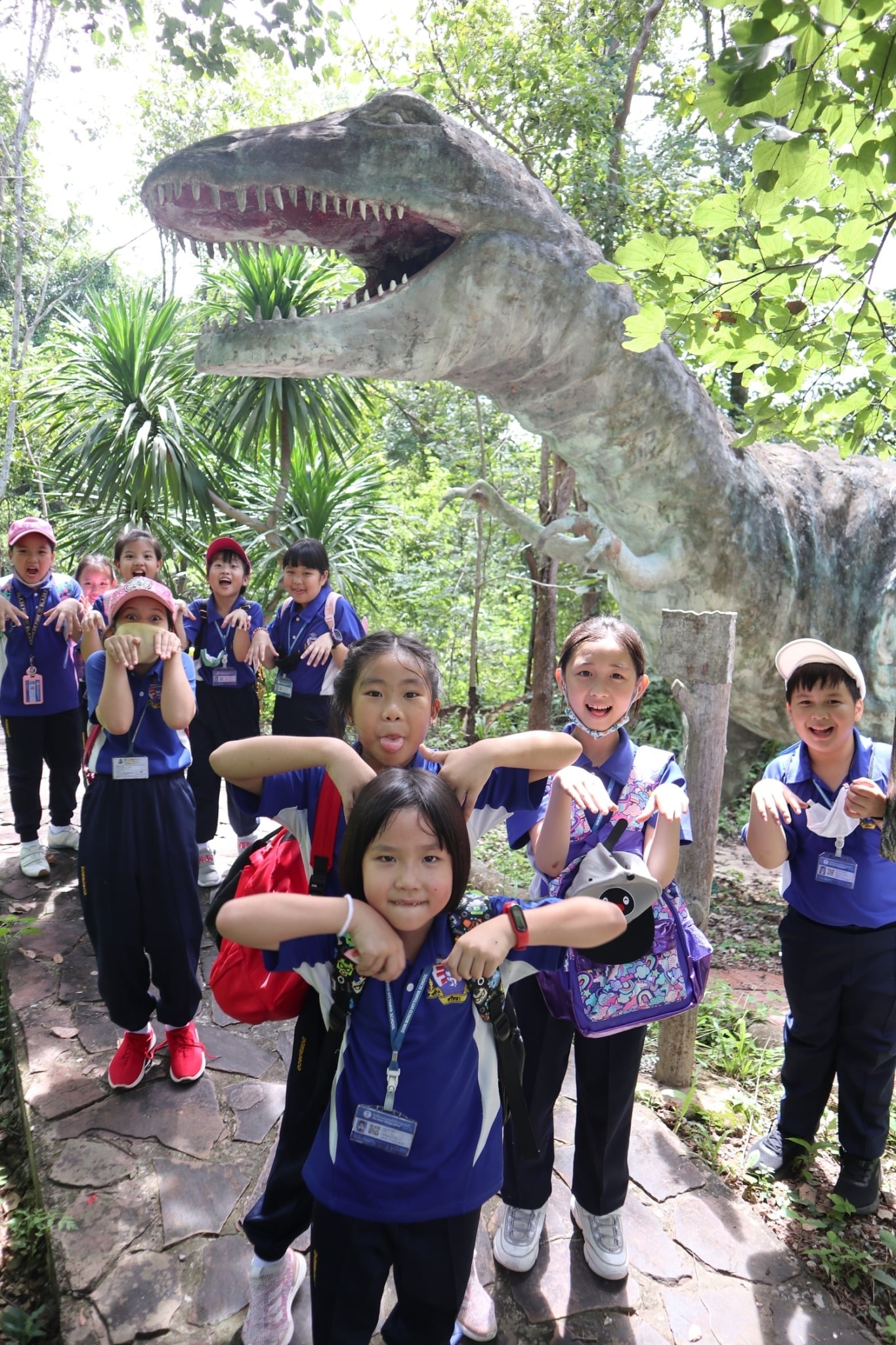โรงเรียนของเรา ปัจจุบันทำการสอนตั้งแต่ระดับอนุบาลถึงมัธยมศึกษาตอนปลาย
Experience organizing for early childhood aged 3-6 years is an organized activity through
play, action from a variety of direct experiences, knowledge, skills, morality, ethics
, including development of physical, emotional, mental, social and intellectual aspects. Organized into courses with principles
And experience management guidelines as follows
1. Principles of organizing experiences
1.1 Provide a variety of play and learning experiences. To develop children in a holistic manner
Balanced and continuous
1.2 children focus on Meet needs, interests, personal differences and context
Of the society in which children live
1.3 arrange for children to be developed By giving importance to the learning and development process of children
1.4 Manage development to be a continuous process. And part of the
experience, along with the results of the ongoing development of
1.5 to parents, families, communities and all stakeholders involved in the development of children
2. Guidelines for the experience
2.1. Experience in accordance with developmental psychology And age-appropriate brain function
Maturity and level of development So that every child can develop to their full potential
2.2 Provide experiences in accordance with the learning model of the children. Children take action through
their five senses. Movement, explore, play, observe, search, experiment and think about the problem by themselves.
2.3 Organize an integrated experience By integrating activities, skills and learning materials.
2.4 Provide experiences for children to initiate, plan, decide, act and present ideas.
By an instructor or an experience organizer as a sponsor Convenient And learn together with children.
2.5 Arrange experiences for children to interact with other children and adults in a conducive environment.
Learning in a happy warm atmosphere And learn to do cooperative activities in different ways
2.6 Provide experiences for children to interact with media and learning sources that are diverse and in their way of life
Of children in line with the social and cultural context surrounding the child.
2.7 Provide experiences that promote good character And daily living skills According to the principle
Philosophy of Sufficiency Economy Including inserting morality and ethics And discipline as part of organizing
Continuous learning experience
2.8 Organize experiences in a planned manner in advance. And the map takes place in real condition by
It had expected
a 2.9 DOCUMENTATION prepared by gathering information about the child’s development and learning is
individualized and be contemplated to be beneficial to children’s development and research in the classroom
2:10 organizer. Experiences by engaging parents, families and communities through planning, supporting
media, learning resources Participation in activities And development assessment
3. Organizing daily activities
Activities for children aged 3-6 years can be used as daily activities in many forms.
This helps the instructor or the experience organizer know what, when and how each day to do. The
organization of the daily activities can take many forms. Depending on the suitability of each use.
Agencies and community conditions Importantly, teachers have to take into account the organization of activities to cover all aspects of development.The organization of
daily activities has principles and scope of daily activities as
3.1 Principles of daily activities
1) Determine the duration of each activity to be suitable for the age of the child in each day.
But flexible according to the needs and interests of children such as
ages 3-4 years old, about 8-12 minutes
of interest, 4-5 years old, about 12-15 minutes
, 5-6 years old, about 15-20 minutes.
2) Activities that require thinking in both small and large groups Should not be spent continuously
for more than 20 minutes.
3) Activities where children are free to choose to play freely To help children make decisions, think
about creative problems such as playing around the corner. Outdoor play, etc. takes about 40-60 minutes.
4) Activities should be balanced between indoor and outdoor activities. Activities used
Big muscles And small muscles Individual activities Small and large groups Child-initiated activities, and
The instructor or experience host is the initiator. And activities with force and without force Complete all types of
activities, however, activities that require exercise should be alternated with activities that do not require much exercise. So that the child will not be too tired.
3.2 Scope of daily activities The selection of activities to be held on a daily basis can take many forms, depending on Appropriate for the use of each agency and community conditions Importantly, the teacher must take into account the organization of activities for Covers all aspects of development as follows:
1) Big muscle development. It develops strength, balance, flexibility , agility in the use of organs and rhythm of movement in the use of large muscles. By organizing activities for Children can play freely outdoors. Play field players Free climb Move your body to the rhythm of the music
2) development of small muscles Is to develop the strength of small muscles Hand muscles – fingers Coordination between the hand muscles and the hand nervous system fluently and Harmonize By organizing activities for children to play Play educational games Practice self-help in dressing and handling utensils. And art materials such as crayons, scissors, brushes, clay, etc.
3) develop, cultivate emotional, mental and moral ethics are instilled in children. Have good feelings for oneself and others Have confidence, assertiveness, discipline, responsibility, honesty, thrifty, compassionate, generous, sharing, good manners and behave according to Thai culture and religion by organizing various activities.Through play, children have the opportunity to make choices. Has been met as required. Practice
continuously inserting morality and ethics
4) development of social habits It is the development of children to have good character. Assertive And live happily with others Help yourself to carry out daily activities Have a habit of loving work Be aware of the safety of yourself and others. As well as being careful of the danger from strangers Let the children practice Regular daily activities Dining Relax, sleep, excrete, clean your body, play, and work with others. Follow the rules, rules, collective agreements. Keep things in place when playing or completing work.
5) thinking development It is a development for children to have the ability In solving problems Concept And think mathematically and Science by organizing activities for children to discuss, discuss, exchange ideas
Invite speakers to talk to the children. Field study Play educational games
Practice solving problems in daily life. Practice designing and creating work pieces
And doing activities both in small groups, large groups and individually
6) language development It is a development for children to use language to communicate and convey their feelings.
Knowledge of things that the child experiences Can set They ask what they are wondering, know how to organize physical activities. Provide language diversity in an environment conducive to learning. Aiming to instill in children to be assertive in listening, speaking, reading and writing, having a love of reading And the environment person must be a good role model in language, with the principles of language activities appropriate for children in mind.
7) promoting imagination and creativity This encourages children to think
Get creative To convey emotions, feelings and see the beauty of things by organizing
creative arts, music, movement and imaginary rhythms. Invent things independently, role-play.
Play in the water, play sand, play blocks and play in construction.
Development assessment
The evaluation of child development aged 3-6 years is to assess the physical, emotional, mental,
social and intellectual development of children. It is an ongoing process. And it is part of the normal activities held by children on
a daily basis. Results from observations of child development must be presented in a documentary or documented.
Systematically By collecting works for children individually who can tell stories or experiences that
Children received how much they learned and progressed, and the results of child development assessments were
taken into consideration to improve the activity planning. And encourage each child to develop according to their goals
Ongoing course Development assessment should be based on the following principles:
1. Plan a systematic
development assessment 2. Assess all aspects
of child development 3. Assess individual child development on a regular basis. Regularly throughout the year
4. assessed according to actual conditions necessary daily activities with a variety of tools and methods should not be used to test
5. Summary of evaluation results. Prepare information and apply the results of the assessment to develop children for appropriate assessment methods and should be used with children aged 3-6 years.
These included observation, recording behavior, conversation with children, interviews, and systematic analysis of data from children’s results.
Structure of Extra Curriculum Activities


